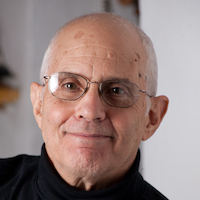If we’re going to use the word, let’s use it right.
In a recent PBS interview with Bill Moyers, social psychologist Jonathan Haidt explained what his research reveals about the differences between liberals and conservatives.
Haidt’s work on positive psychology and what he calls Moral Foundations Theory has received well-deserved acclaim, and much of what he said in that interview was illuminating. But one reference he made was off base, and Moyers — a national treasure whose return to TV from premature retirement is cause to rejoice — did not challenge him on it. Someone should, so here goes.
When asked about the conservative view on policies such as taxing the wealthy, Haidt said, “The conservative moral position on this is the Protestant work ethic. It’s karma.”
Never mind the dubious linking of Protestants with a core premise of the religions birthed in India (Hinduism, Buddhism, Jainism, Sikhism). And never mind that the number of conservatives who would say they believe in karma is about as big as the number of Hindus who consider Jesus their personal Savior. Haidt went on to misconstrue the meaning of karma.
“Karma is a Sanskrit word,” he said, “literally for work, or fruit.” Not quite: it is usually translated as “action,” not “work.” But let’s move on. Haidt explained that “Hindu tradition believes the universe will right itself, balance itself. It’s like gravity. If I am a lazy, good for nothing, lying scoundrel, the universe will right that and I will suffer.” Fair enough.
But then he went astray by linking that grand cosmic principle with modern conservative values. Conservatives, he said, don’t like “liberal do-gooders and the federal government” bailing out the losers in the competitive marketplace, adding that the conservative position is basically that “liberals are trying to revoke the law of karma.”
As Haidt probably knows, if liberals think of the concept at all, it would be to affirm that social justice produces good karma.
Later in the interview, he brought up karma in reference to that infamous moment in the Republican debates when Wolf Blitzer asked Ron Paul about a hypothetical person who falls into a coma after choosing not to buy health insurance.
Moyers asked Haidt why the audience cheered at the suggestion that the coma victim should be left to die. “Because they want a world in which karma functions,” said the psychologist. Their reasoning, he said, is that the man “made a choice to not buy health insurance, and if karma works as it should, no one will pay for it and he will die.”
Since the audience in question was presumably heavily Christian, one is tempted to ask, “Never mind Hindu ideas, what would Jesus say?” But that’s another issue.
The point here is that the philosophy Haidt describes is closer to Social Darwinism than it is to the laws of karma. That is to say, it is more “survival of the fittest” than “you reap what you sow.”
It is true, of course, that karma posits a fair and balanced universe governed by a system of cosmic justice that functions as lawfully as gravity.
So many Americans have found the idea appealing that “karma” has entered the vocabulary as a kind of shorthand for getting what we deserve, whether as a reward for positive actions or as punishment for negative ones.
You hear the word on newscasts, sports reports, sitcoms, pop music and in conversations far removed from yoga studios and meditation retreats. As a way of understanding the age-old question, “Why do bad things happen to good people, and vice versa?” it is rapidly replacing the alternatives.
But it is widely misconstrued and commonly misused, even by well-informed scholars like Dr. Haidt. Any conservative who evokes karma to justify winner-take-all economics is making a grave error (although, to be fair, the same error has been made in India by those who wish to leave the caste system unchanged). Properly understood, karma does not uphold indifference, fatalism or apathy.
That’s one of many mistakes in Haidt’s cavalier use of the term. Another is the time frame. Karmic law can play out over a long period of time. And I mean long. Not long as in a drawn-out court case or a bureaucratic snafu, but long as in lifetimes; karma can’t be adequately understood without reference to its close cousin, reincarnation.
Hence, linking one’s current economic status exclusively to one’s prior actions in this life is simplistic to say the least. Nor is there necessarily not a connection. It’s simply beyond the powers of human calculation to trace a clean cause-effect line. That’s why the Bhagavad Gita refers to the complex patterns of karma as “unfathomable.”
Haidt also fails to account for future karma. What are the karmic consequences for well-off individuals who are callous about the less fortunate? What is the collective karma of a society that fails to provide adequately for all its citizens, or allows the ill to die for lack of health insurance? Does good karma accrue to those who act to balance the scales in the present?
In short, karma can be used to justify liberal positions too.
I don’t know if Haidt misunderstands karma or was merely attributing that interpretation to conservatives. I do know that the concept is catching on in the West, particularly in yoga circles, as a reasonable way to comprehend the impact of our thoughts, intentions and actions.
So, if we’re going to invoke the principle in public discourse, let’s get it right, before some yahoo claims it’s Iran’s karma to get bombed.
~
Editor: Andrea B.
Like elephant enlightened society on Facebook.










Read 19 comments and reply